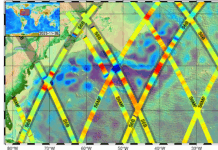In the dynamic world of software development, where efficiency and innovation are paramount, Docker continues to be a key player. With its containerization technology, Docker has revolutionized how developers build, ship, and run applications. One of its indispensable tools is Docker Compose, which allows developers to define and run multi-container applications. A recent announcement from Docker introduces exciting new features to enhance the editing experience for Compose files, crucial for developers aiming to create robust applications seamlessly.
### Enhancements in Docker Compose: Elevating the Editing Experience
Docker Compose is a tool that has become integral to the workflows of countless developers worldwide. It allows users to configure a set of services with just a single command, simplifying the management of multi-container Docker applications. Recognizing the importance of an efficient editing process for Compose files, Docker has introduced new capabilities in the Docker Language Server, designed to make authoring Compose files more intuitive and less error-prone.
#### Introducing Schema-Driven Features
One of the standout improvements is the integration of schema-driven features within the Docker Language Server. This advancement brings the Compose specification directly into your editor, minimizing the need to switch between windows and external documentation. The Compose specification is essentially a set of rules that defines how Docker Compose files should be structured. By embedding this directly into the editing environment, developers can enjoy immediate access to relevant information and guidance as they work, boosting productivity.
To illustrate, when working on a Compose file, developers can leverage hover tooltips that provide quick insights into specific attributes. This feature is especially beneficial for those who may not be intimately familiar with every aspect of the Compose specification, as it offers real-time, contextual information. This reduces the likelihood of errors and accelerates the learning curve for newcomers to Docker Compose.
#### Context-Aware Intelligence: Making Smart Suggestions
Another significant feature is the context-aware intelligence built into the Docker Language Server. While the Compose specification provides a foundation, many attributes within a Compose file have contextual meanings that reference values from other attributes or even different files. Understanding these relationships can be challenging, especially for complex applications.
The Docker Language Server addresses this challenge by intelligently suggesting relevant values based on the current context of the file. For instance, if a developer is editing a Compose file that interacts with a separate Dockerfile, the language server can infer relationships and offer pertinent suggestions. This ability to connect the dots between different components of an application reduces guesswork, allowing developers to focus more on developing features rather than troubleshooting configuration issues.
#### Freedom of Choice: Versatility Across Editors
A standout feature of the Docker Language Server is its compatibility with the Language Server Protocol (LSP). This protocol allows the language server to integrate with any editor that supports LSP, providing developers with the flexibility to choose their preferred development environment. Whether it’s Visual Studio Code, JetBrains IDE, or any other LSP-compliant editor, the Docker Language Server can be seamlessly integrated, offering the same level of support and functionality across platforms.
For instance, developers using JetBrains IDE can utilize the LSP4IJ plugin to access the full suite of Docker Language Server features. This versatility ensures that developers are not constrained by their choice of tools and can enjoy a consistent, enhanced editing experience regardless of their preferred editor.
### Conclusion: Accelerating Development with Docker Language Server
Docker Compose remains a cornerstone of the development process for many organizations. By enhancing the editing experience with the Docker Language Server, Docker empowers developers to build, test, and deploy applications more efficiently than ever before. These new features not only streamline the editing process but also foster a deeper understanding of Compose file configurations, ultimately leading to more robust and reliable applications.
To get started with these new features, developers can install the Docker DX extension for Visual Studio Code or download the Docker Language Server to integrate it with their editor of choice. This proactive step can significantly enhance productivity and ensure a smoother development workflow.
### What’s Next: Continuous Improvement
Docker’s commitment to innovation is underscored by its openness to feedback from the developer community. As with any tool, real-world usage can uncover areas for improvement and new feature possibilities. Docker encourages users to share their experiences and suggestions, as this feedback is invaluable in shaping the future of the Docker DX extension and the Docker Language Server.
The development community is invited to contribute ideas for enhancements or report any issues encountered while using these tools. Docker’s development team is keenly listening to its users and is dedicated to refining and expanding these tools to better meet the needs of developers.
### Learn More: Resources and Further Reading
For those interested in delving deeper into the capabilities of Docker Compose and the Docker Language Server, a wealth of resources is available. Official Docker documentation provides comprehensive guides and tutorials, while community forums and discussion groups offer a platform for sharing knowledge and insights.
By embracing these new enhancements, developers can continue to leverage Docker Compose as a powerful tool in their software development arsenal, driving forward innovation and efficiency in their projects.
For more Information, Refer to this article.


































